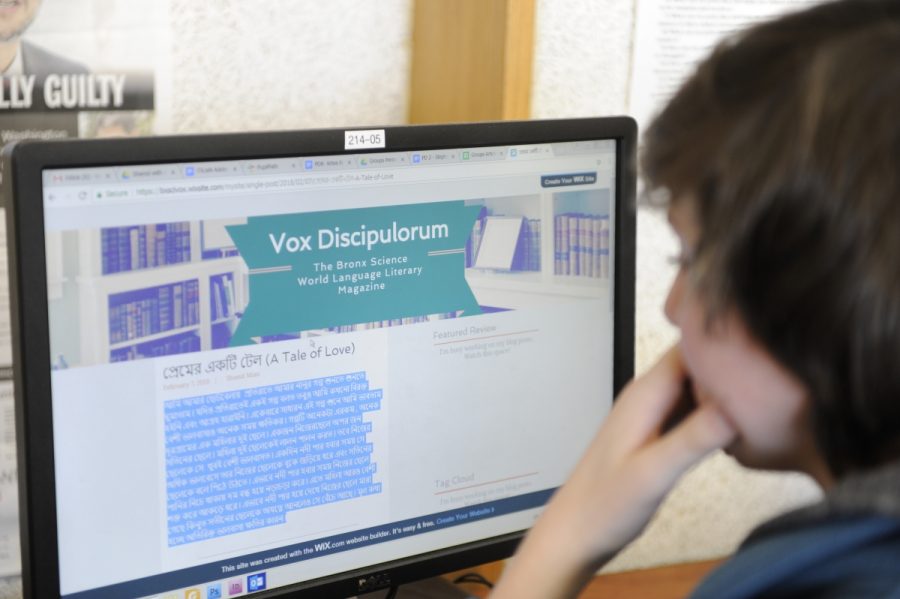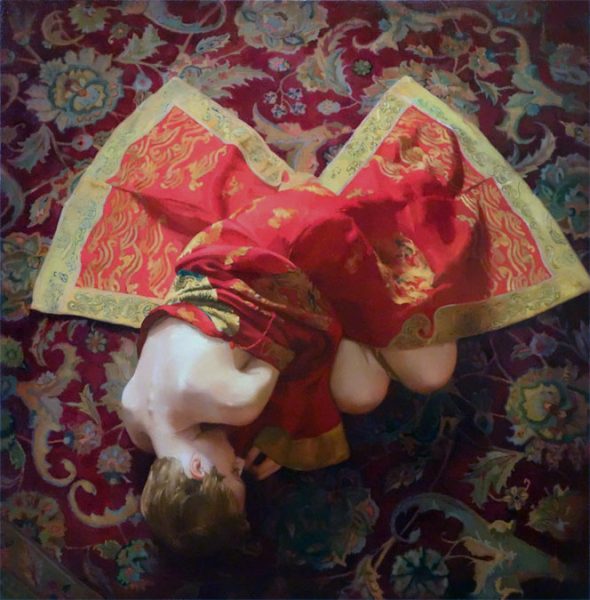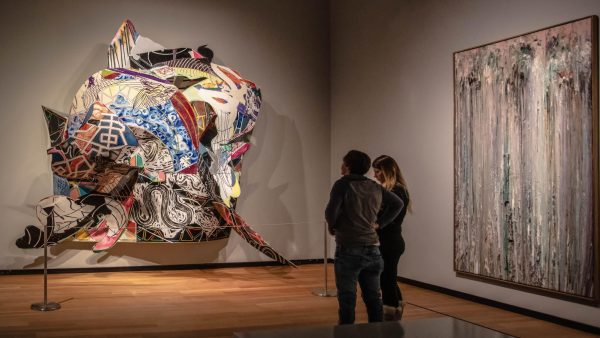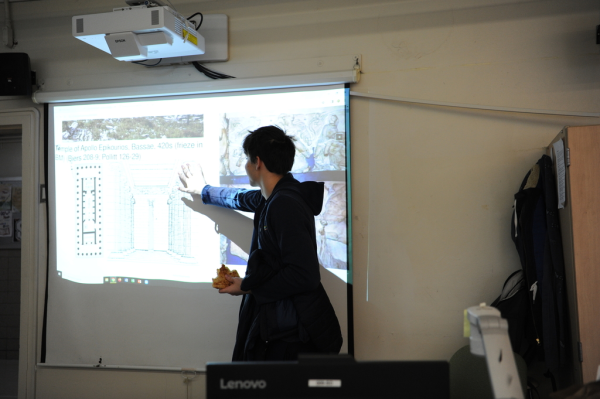Introducing the Vox Discipulorum: World Language Magazine
Pietro Topa ’19, a writer for Vox Discipulorum, reads a student’s submission.
Vox Discipulorum can be translated to ‘voice of the student’ in Latin. In a school as diverse as Bronx Science, the voices that flood our hallways possess many languages, from French to Japanese to Chinese to Spanish. Thus, the name ‘Vox Discipulorum’ is quite fitting for our World Language Magazine as the publication seeks to allow all students to express themselves in a language they know or are learning in a creative setting.
Señora Maria Olmedo, AP Spanish Language and Literature teacher, decided to restart Vox this year after a twenty year dormancy.
In light of today’s political climate, immigrants have been ostracized and foreign language has been villainized despite the fact that our nation is globalized. Thus, when President Trump proposed a plan to create a more selective immigration process, it became apparent there was a need for an outlet for students to celebrate their diversity.
“The World Languages department has wanted to bring back Vox for many years. That being said, the political climate has certainly influenced our decision to restart the magazine. The current climate acted as a jump-starter in many respects,” said Olmedo.
President of the publication, Uma Balachandran ’18, described the necessity for such a publication. “We believe that now, more than ever, we have a responsibility to learn languages and to use them to break down barriers that exist in our world between different groups of people,” said Balachandran.
The publication is currently in the form of an online blog. Vox accepts student submissions in any foreign language, even if the language is not offered by the school. Each student has complete artistic freedom to write about any topic that they feel passionate about, the only requirement being that the piece of writing is accompanied by an English translation. During the meetings every Monday, members work on their writing and review student submissions.
In addition to the online blog, the Vox Leadership aims to publish a hard copy of the magazine which will include student artwork, photography, poetry, political essays, and everything else in between.
Jonathan (Jack) Nicastro ’19, Vice President of Vox Discipulorum, explained the broad array of opportunities the publication provides. “Above all, we aim to foster a sense of appreciation for foreign culture, art, and writing,” said Nicastro.
One of the staff writers for the publication, Pietro Topa ’19, joined the Vox team because it allowed him to further pursue his passion for Italian. As a child of immigrants, Topa used his proficiency in Italian to connect to his family’s roots and further explore his culture. “Besides having one class of less than thirty students, Italian is very underrepresented in our school. Vox is so great because it gives me a rare opportunity to express my love for Italian outside of a traditional classroom setting,” said Topa.
Those who cannot commit to attending the meetings are still welcome to submit their work. Lucy Jin ’19 posted a paragraph in Chinese titled 日本 (Japan) in which she detailed why she wished to visit Japan, specifically Tokyo and Osaka. This interplay between Japanese and Chinese influences directly translates to Jin’s everyday life.
“I take Chinese classes in school so I can better communicate with family. Submitting to Vox allowed me to showcase how much I have improved since I first started learning the language. I wrote about Japan because I also take Japanese classes and the culture is so fascinating to me,” said Jin. As someone who wishes to pursue international business, having a diverse ray of languages under her belt is especially helpful.
Other writers utilize Vox Discipulorum as a platform to voice their political beliefs. Cesia Massott ’19 published a Spanish poem in response to the immigration issues and blatant racism she heard on the news. “In the poem that I wrote, I felt that history does indeed repeat itself and we seem to have a history of showing no compassion towards immigrants. I spoke about earlier immigration issues back in the eighteenth and nineteenth century simply to showcase that when we study these times in history class, we denounce the actions of politicians driving by nativism and racism, but we lack that same passion to speak out about the issue in our own times,” said Massott.
“It gives me a rare opportunity to express my love for Italian outside of a traditional classroom setting”
In the words of Ms. Olmedo, “Language has always been a driving force behind change, progress, and transformation.”
At Vox, students are given the opportunity to experience language as a force of action, benefitting from all it has to offer.
Artea Brahaj is an Editor in Chief for ‘The Science Survey’ and a Groups Section Staff Reporter for ‘The Observatory.’ She has always loved writing...











